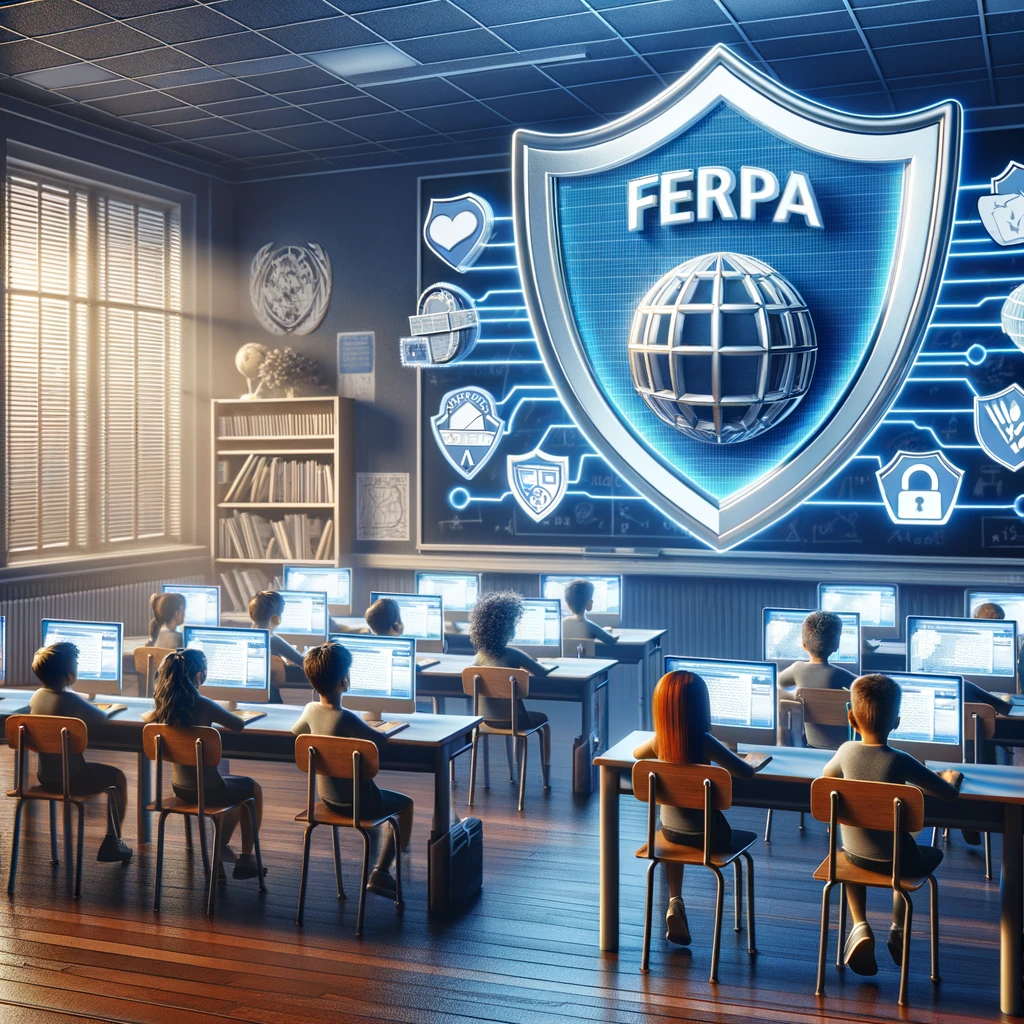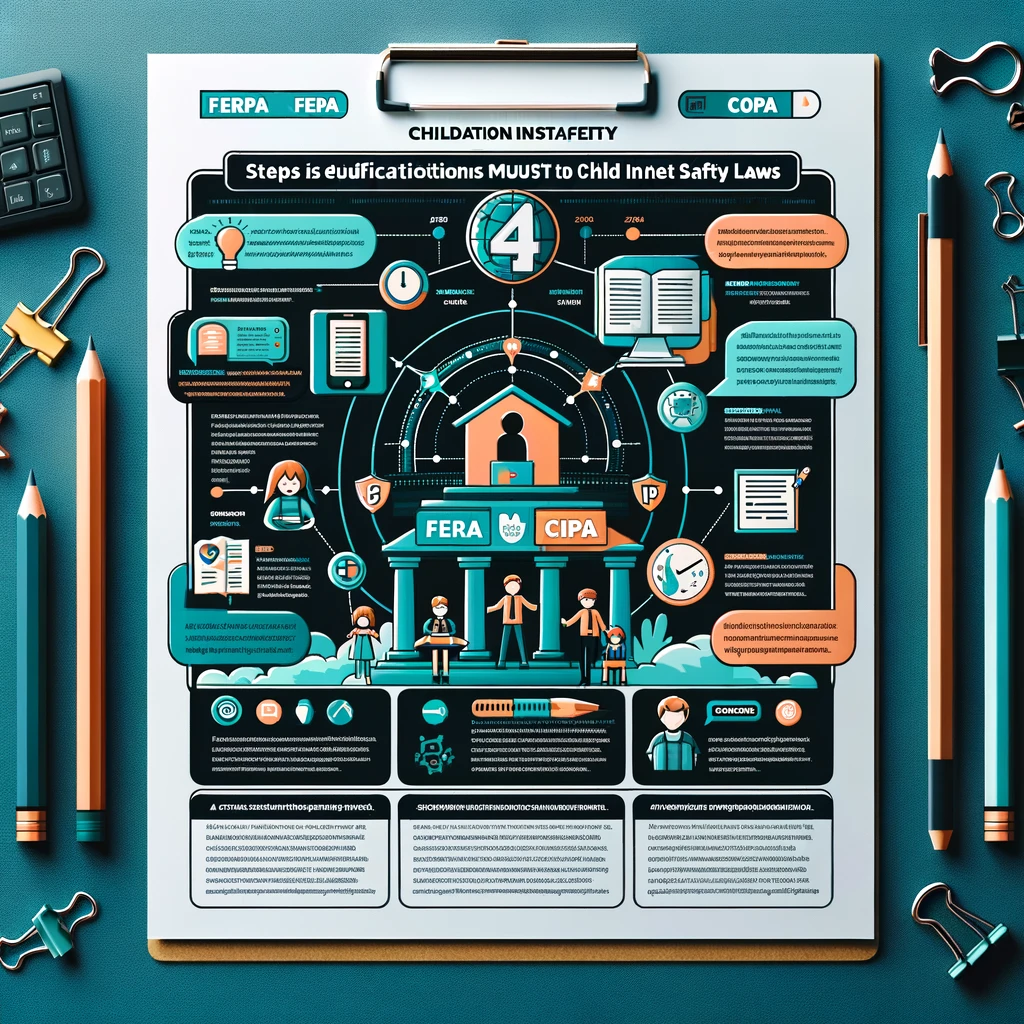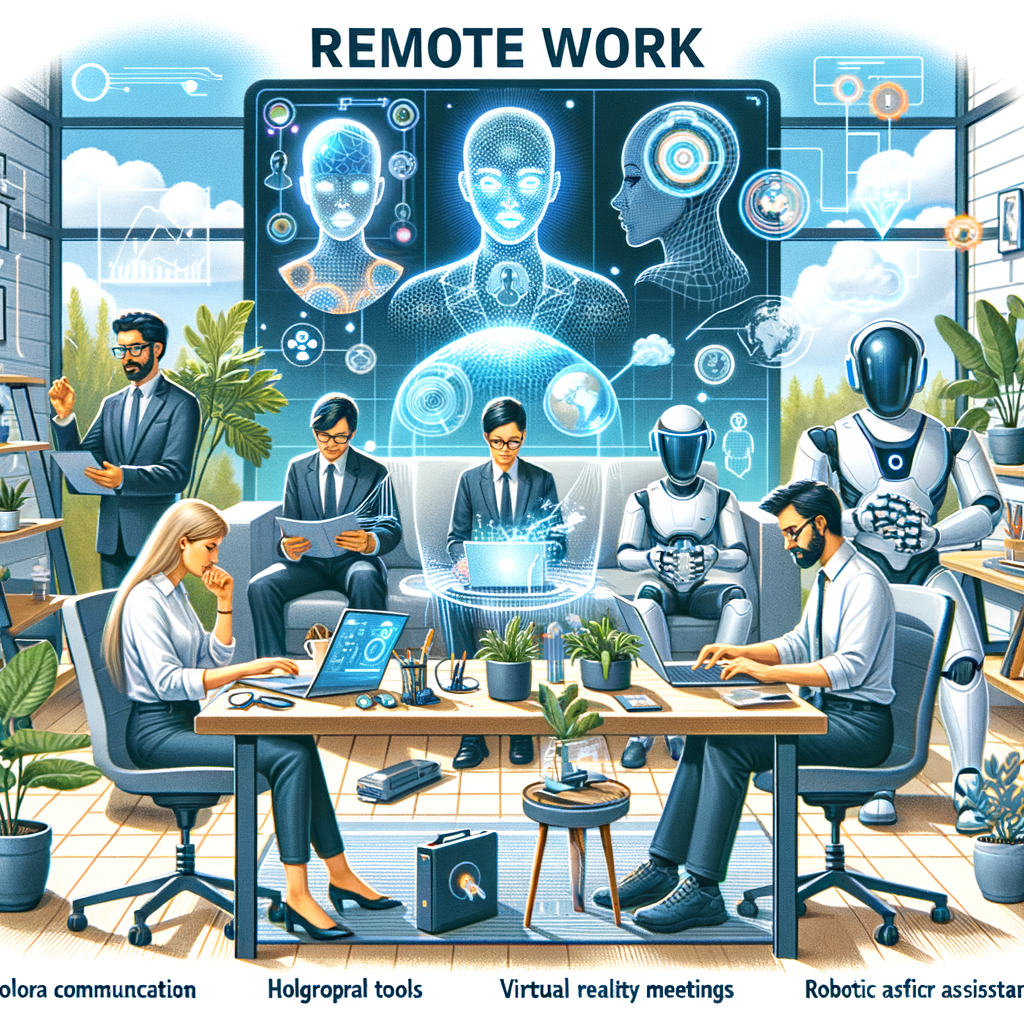In today’s digital age, the protection of children on the internet is a paramount concern for educational institutions. It’s essential to understand the current regulations to develop a comprehensive strategy that safeguards students’ privacy and access to appropriate content. This post delves into the key legislations, including the Family Educational Rights and Privacy Act (FERPA), the Children’s Internet Protection Act (CIPA), and the Children’s Online Privacy Protection Act (COPPA), focusing on their implications for schools and libraries.

The Bedrock of Student Privacy: FERPA
Enacted in 1974, FERPA aims to protect student privacy, covering personal and educational records. It grants parents full access to their child’s records until the age of eighteen, after which the student takes over control. Applicable to publicly funded educational entities, FERPA mandates that any data sharing requires written consent from the parent or the student, depending on the age Family Educational Rights and Privacy Act (FERPA) – Cornell Law School.
Shielding Students: CIPA’s Role
Passed in 2000, CIPA requires schools and libraries receiving federal E-Rate funding to filter internet content, blocking access to offensive materials, including pornography. This law underscores the responsibility of educational institutions to provide a safe online environment, making it essential for compliance Children’s Internet Protection Act (CIPA) – FCC.
Protecting Young Internet Users: Understanding COPPA
COPPA sets stringent guidelines for websites regarding the collection of data from children under thirteen. It defines personal information broadly, including full names, addresses, and photographs, among others. COPPA mandates a clear privacy policy and verifiable parental consent before data collection, emphasizing the need for robust data protection measures Children’s Online Privacy Protection Act (COPPA) – FTC.
Practical Steps for Educational Institutions

Given the focus on FERPA and CIPA within educational settings, it’s crucial to maintain student information confidentiality and ensure internet content filtering. While COPPA primarily targets website operators, its principles of data protection are universally applicable. Implementing a DNS-based solution like WebTitan can effectively restrict access to inappropriate content while allowing flexibility for adult internet use. Such solutions, coupled with a clear internet safety policy and active cyberbullying prevention measures, are vital WebTitan Web Filter.
Balancing Filtering with First Amendment Rights
Addressing internet filtering in public libraries and schools raises First Amendment considerations. It’s important to have mechanisms that quickly adjust filtering settings for adult users, ensuring access to lawful speech without unnecessary restrictions Filtering and the First Amendment – American Libraries Magazine.
In conclusion, the collective effort to protect children online while respecting privacy and free speech rights demands ongoing attention and adaptation to technological advancements. Educational institutions play a critical role in navigating these challenges, fostering a safe and enriching digital environment for all students.






